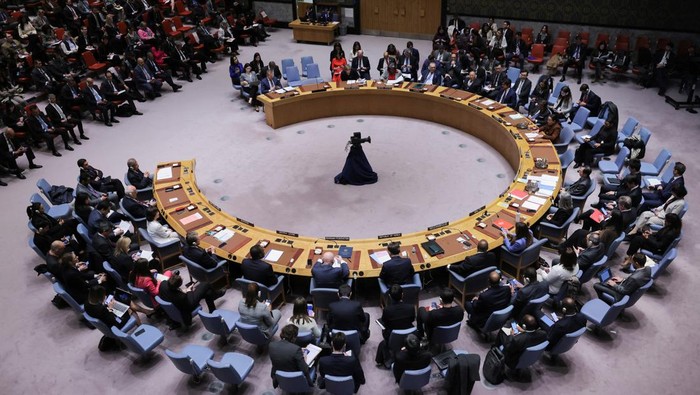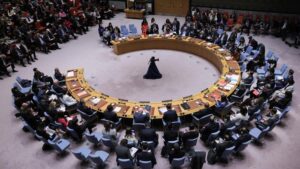

The quest for Palestine’s full membership in the UN has sparked intense debate and global attention. As the world watches closely, the longstanding conflict between Palestine and Israel takes center stage once again. With tensions high and hopes higher, let’s delve into the complexities surrounding this hot topic that could reshape international relations as we know them.
The history and background of the Palestine-Israel conflict
The history and background of the Palestine-Israel conflict dates back to the early 20th century when tensions arose over competing national aspirations in the region. With roots deep in historical claims and religious significance, both Palestinians and Israelis have strong connections to the land they call home. The conflict intensified with the establishment of Israel in 1948, leading to displacement and suffering for many Palestinians.
Over decades, peace efforts have been made through negotiations, but underlying issues such as borders, settlements, security, and refugees remain unresolved. The conflict has seen periods of violence, including wars and uprisings that have claimed countless lives on both sides. International involvement has aimed at finding a lasting solution but has often faced challenges due to deep-seated grievances and differing perspectives on key issues. As the world watches closely, hoping for a peaceful resolution for all involved parties – it is essential to understand the complex history that shapes this enduring conflict between Palestine and Israel.
Why Palestine is seeking full membership in the UN
Palestine is seeking full membership in the UN to gain international recognition and legitimacy for its statehood. The Palestinian leadership believes that being a full member of the United Nations will strengthen their position in negotiations with Israel and other countries. By obtaining this status, Palestine hopes to have a stronger voice on the global stage to advocate for its rights and interests.
Membership in the UN would also provide Palestine with access to international forums where they can address key issues such as human rights violations, territorial disputes, and economic development. It would enable them to participate more actively in discussions concerning peace efforts and conflict resolution in the region. Furthermore, becoming a full member of the UN would grant Palestine access to various resources, aid programs, and support from other member states. This could help boost their economy, improve living conditions for Palestinians, and enhance overall stability in the region.
Current status of Palestine’s membership in the UN
The current status of Palestine’s membership in the UN is a topic of ongoing debate and discussion. While Palestine has been recognized as a non-member observer state since 2012, its bid for full membership continues to face challenges and obstacles. The United States has historically opposed Palestinian efforts to gain full recognition, citing concerns about the peace process with Israel.
Despite these hurdles, Palestine remains determined in its quest for full membership. The recent show of support from countries like Indonesia signals growing international backing for Palestine’s aspirations. With Indonesia set to preside over the UN Security Council in 2024, there may be an opportunity for renewed momentum towards granting Palestine full membership.
As the political landscape evolves and new dynamics come into play, it remains to be seen how events will unfold regarding Palestine’s status at the UN. Stay tuned for updates on this developing story as it unfolds on the world stage.
Arguments for and against Palestine’s bid for full membership
The arguments for Palestine’s bid for full membership in the UN are rooted in the pursuit of self-determination and international recognition. Supporters believe that granting Palestine full membership would affirm its sovereignty and rights on the global stage, leading to increased diplomatic leverage and opportunities for peace negotiations. Proponents argue that it is a step towards achieving a two-state solution with Israel, promoting stability in the region.
On the other hand, opponents raise concerns about potential implications for Israel’s security and regional dynamics. Some argue that granting Palestine full membership could further escalate tensions and hinder future peace talks. There are also fears of setting a precedent for other disputed territories seeking similar recognition, potentially complicating existing geopolitical challenges. Debates surrounding Palestine’s bid reflect deep-seated complexities within the Middle East conflict, with valid points raised on both sides regarding the risks and benefits of full UN membership.
International support for Palestine’s membership
International support for Palestine’s membership in the United Nations has been a topic of global interest. Countries from various regions have voiced their backing for Palestine to attain full membership. Indonesia, a prominent supporter, has actively advocated for Palestine’s rights on the international stage. Other nations such as Malaysia and Turkey have also shown solidarity with Palestine in its quest for recognition. The European Union member states have expressed mixed opinions, reflecting the complexity of the issue. While some countries endorse Palestinian statehood, others remain cautious due to political considerations.
The African Union has consistently supported Palestine’s aspirations for full UN membership, emphasizing the importance of self-determination and sovereignty. Latin American countries like Brazil and Venezuela have stood firm in their backing of Palestinian rights. International support plays a crucial role in shaping the discourse surrounding Palestine’s membership at the United Nations.
Possible outcomes and implications of Palestine’s membership in the UN
As Palestine’s bid for full membership in the UN progresses, there are various possible outcomes and implications to consider. If Palestine achieves full membership status, it could lead to increased international recognition and legitimacy for the Palestinian state on a global platform. This could potentially strengthen their diplomatic efforts and bargaining power in negotiations with Israel.
On the other hand, granting Palestine full membership may also escalate tensions with Israel and other countries that oppose Palestinian statehood. The move could further polarize opinions within the international community regarding the Israeli-Palestinian conflict. Moreover, if Palestine becomes a full member of the UN, it may gain access to more resources, aid, and support from other member states. This could help improve living conditions for Palestinians and advance their pursuit of self-determination. However, challenges such as potential backlash from Israel or veto powers held by certain countries in the UN Security Council may hinder Palestine’s ability to fully exercise its rights as a member nation.
Conclusion: The future of Palestine’s quest for full membership
The future of Palestine’s quest for full membership in the UN is undoubtedly a complex and multifaceted issue. With increasing international support, it seems that Palestine’s full membership in the UN is not just a possibility but rather a matter of time. As we look ahead to the year 2024 and beyond, all eyes will be on how this situation unfolds, especially with countries like Indonesia backing Palestine’s bid.
The implications of Palestine gaining full membership are significant and could potentially reshape the dynamics of global politics. It could provide Palestinians with greater diplomatic leverage and access to international forums to advance their interests.
While challenges remain, including opposition from some nations and ongoing conflict with Israel, it is clear that momentum is building towards granting Palestine full membership in the United Nations. The coming years will be crucial in determining the outcome of this historic struggle for recognition and rights on the world stage.






